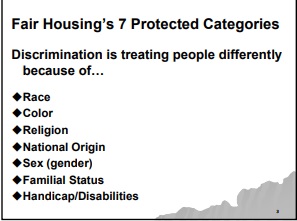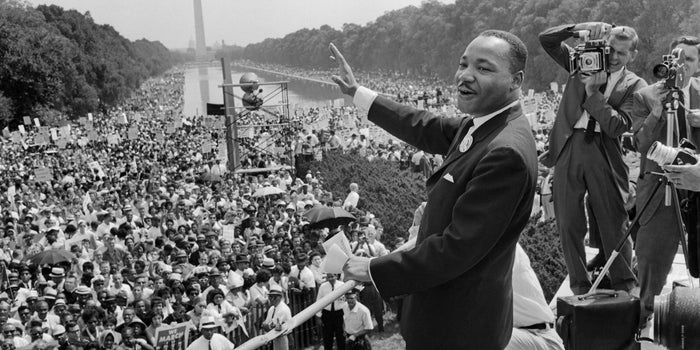
Title VIII of the proposed Civil Rights Act was known as the Fair Housing Act, a term often used as a shorthand description for the entire bill. It prohibited discrimination concerning the sale, rental and financing of housing based on race, religion, national origin and sex….
On April 4—the day of the Senate vote—the civil rights leader Martin Luther King Jr. was assassinated in Memphis, Tennessee, where he had gone to aid striking sanitation workers. Amid a wave of emotion—including riots, burning and looting in more than 100 cities around the country—President Lyndon B. Johnson increased pressure on Congress to pass the new civil rights legislation.
Since the summer of 1966, when King had participated in marches in Chicago calling for open housing in that city, he had been associated with the fight for fair housing. Johnson argued that the bill would be a fitting testament to the man and his legacy, and he wanted it passed prior to King’s funeral in Atlanta.
After a strictly limited debate, the House passed the Fair Housing Act on April 10, and President Johnson signed it into law the following day.
History.com

Oregon’s Bureau of Labor & Industries oversees Fair Housing complaints. The website states the following:
What is fair housing?
Fair housing is the right to choose and live in a home free from unlawful discrimination.
Oregon’s laws protect people from being treated differently because of your: race, color, religion, sex, national origin, whether or not you have kids, disability (also: source of income, domestic violence survivors, marital status, sexual orientation, and gender identity).
If you think you are being discriminated against when looking for a home, applying for housing or home financing, or if your landlord isn’t accommodating your disability, you can file a complaint here.
Oregon Bureau of Labor and Industries protects your civil rights at home.
Sometimes housing discrimination looks like…
- You are required to pay a different security deposit than someone of a different race
- Your family is offered different rental options or prices than people without children
- You are directed to housing in a particular area, neighborhood or section of the complex instead of being allowed to make that choice yourself.
- You’re evicted after your landlord finds out your sexual orientation…you’re treated differently, denied services, or singled out because of one of the protected traits listed above.
We can help
The Fair Housing Act gives you the legal right to file a complaint. And it is illegal for anyone to threaten you with eviction or to harass you for filing a fair housing complaint against them.
It’s free to file a complaint and you don’t need to have a lawyer.
If you’re not sure you need to file a complaint but something feels wrong, you can give us a call at 971-673-0761 or email help@boli.state.or.us. We’ll help you navigate the process.


